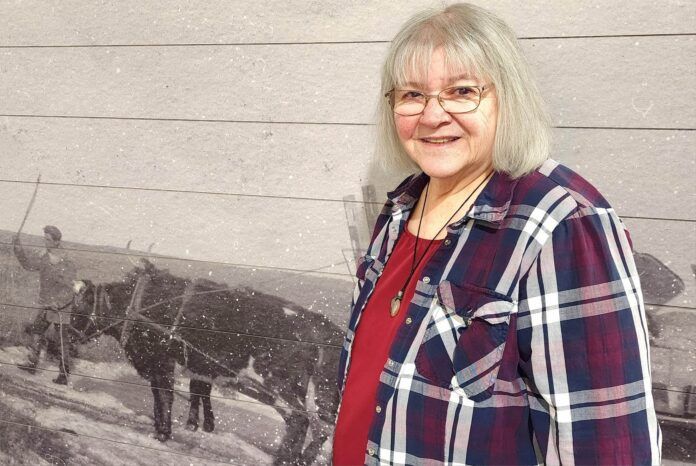The family names are still very present in Lloydminster and area as a local shares on the legacy of her own ancestors and as well children from England, Wales, Scotland and Ireland who came to Canada under the Child Migration Scheme.
Susan Brazeau explains these children came from the streets – “street urchins” as well as orphanages and destitute families. She says the Clark family name was a big one. They settled just north of Alcurve, there being some 170 people with that last name. Other family names are Conlon, Prodgers, Platt, Swettenham (around the Hillmond area) and Pickard.
Her own paternal grandmother, Grace Ruth Sillett came to Canada as a 10-year old in 1902. Brazeau shares how these stories resonate with people.
“I mentioned one of the names of this woman from Paynton – and this woman in the audience said,”I know her. We just live down the street from her. She’s like this and like that.” And I thought this is what it’s about. This is why I love doing the presentations locally – or at least making the information known locally.”
From 1869 to 1948, over 50 British organizations with funding from all of the U.K countries including Canada sent about 100,000 children to Canada. They were between the ages of 2-18 years and came as indentured workers, contracted farm labourers or domestic servants.
Brazeau says some 10 per cent of the population or about 4 million people comprise descendants of British Home children across Canada.
The largest group doing research on this topic is Home Children Canada in Barrie, Ontario. Brazeau says just before the pandemic they had about 6000 members and over the lockdown period more people started doing research into their family history. Their membership has increased to nearly 12,000 as people have discovered they have a British Home child in their ancestry, says Brazeau.
The local researcher explains why the presentation is called almost forgotten.
“The reason why we don’t know about this history is that historians didn’t record it. It was really overlooked. Educators didn’t teach it because they weren’t taught it themselves. And the children kept silent – they lived lives of abuse. They felt that they were not valued except as cheap labour.”
Brazeau says it’s a tough story to hear and she always makes sure to have Kleenex. She says for most of the children, what they were told as they travelled to Canada compared to what they experienced was “quite sad.”
The powerpoint session takes place Saturday Feb. 11 from 1-3 p.m. in the art room for ages 16-plus. Registration costs $5 and can be done online or by calling the Lloydminster Museum and Archives at 780-874-3720.




